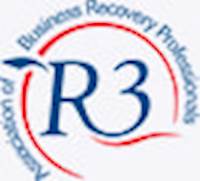Directors may find they need to seek finance for short term cashflow, asset purchases, a one-off large contract or even business expansion. As many companies that seek credit have not built up a sufficient credit history or do not have a balance sheet that meets normal lending criteria, the lender will often ask the directors for a personal guarantee. This means that the lender has two parties to pursue as the director is personally liable for the debt if the company is unable to pay.
Below we explore Director’ personal guarantees in insolvency.
Why do Directors sign personal guarantees?
Lenders recognise that if a company fails they are unlikely to get their money back so to reduce their own risk they will ask the director to sign a personal guarantee. This means that the director has to meet all of the money due under the agreement if the company cannot.
Often it is the case that a personal guarantee from one or more of the directors is the only way that the finance can be obtained. Whilst the company is doing well the personal guarantee is not relevant and over time many directors forget that they have signed the personal guarantee.

Company Directors should be wary of personal guarantee clauses they sign in contracts.
Are Directors’ Personal Assets at Risk in Insolvency?
In insolvency, as it is a Personal Guarantee, the director is liable as though they had borrowed the money themselves and so will have to pay from their own resources. As long as the personal guarantee has been drafted and executed properly the lender can take whatever enforcement action it feels is necessary to recover the balance due from the director. It is not always the case that the proper formalities have been followed and Greenfield Recovery can assist with identifying any deficiencies in the paperwork or process relating to the personal guarantee and insolvency.
What happens if the personal guarantee is called upon?
Initially the lender will write to the guarantor and make formal demand for the balance outstanding. They may seek to reach agreement for repayment which will often mean that the director takes over the monthly payment. If the payments are not sustainable then they may offer lower payments over a longer period of time or perhaps a lump sum settlement. If neither of these are possible then they will look to take enforcement action that can result in court action or even the presentation of a bankruptcy petition. Court action can lead to bailiffs attending the director’s house to remove goods to the value of the judgement debt or a charging order over the house with interest accruing at the statutory rate (currently 8%) until it is paid off. Bankruptcy will result in all of the directors assets that are not tools of their trade or needed to satisfy basic domestic requirements being realised and sold to settle creditor claims. As they will normally be sold at auction this can mean the price obtained Is far less than one would expect.
For this reason it is important that Directors structure their personal finances appropriately when considering setting up in business and seek independent advice if it looks like things are changing for the worse..

If your company is insolvent and you are concerned about Director personal guarantees, contact us today.
Seeking legal advice
Although lenders have their personal guarantees drafted by experienced solicitors they need to do more than simply get the personal guarantee signed. There are a number of formalities that they need to follow, particularly where they are seeking to put a charge on a director’s jointly owned matrimonial home or where they are seeking a guarantee from a director’s spouse. If any of the required formalities are not followed or there is no evidence that they have been followed, it may be that the personal guarantee is not valid and unenforceable. This is why we recommend seeking advice from a solicitor who is experienced in this field once we have carried out an initial review of the personal guarantee.
Book a consultation online today or complete the contact form on our contact page. You can also call our experts today on 0121 201 1720 to get the support you need.




